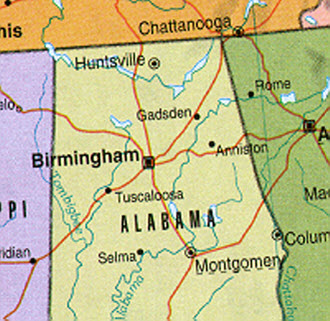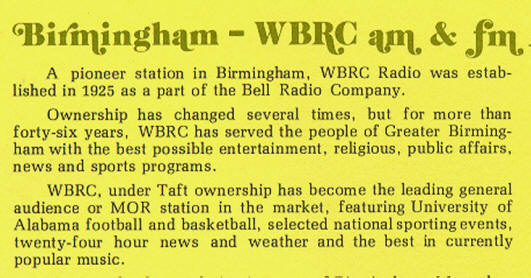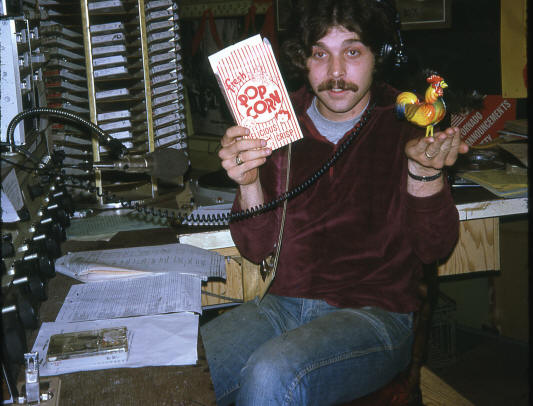| Birmingham 1972 |
|
|
|
Mooney Broadcasting in Birmingham |
| In 1972, Mooney Broadcasting purchased WBRC AM & FM from Taft; calls were changed to WERC. The AM was an established, if tawdry, full service station. The FM was automated oldies. |
|
|
| I transferred to Birmingham as Program Director of the new combo, WERC and WER-FM. |
|
|
|
The influence of playing Allman Brothers Band and other music product of the era had its natural effect on personal appearance! Note the flag sticker on the corner of my desk; that was not an Italian flag, either, unless Italy is now sporting an eagle with a snake in its mouth on its national banner. |
|
|
|
J. W. Jason, first evening rocker on WERC-FM. |
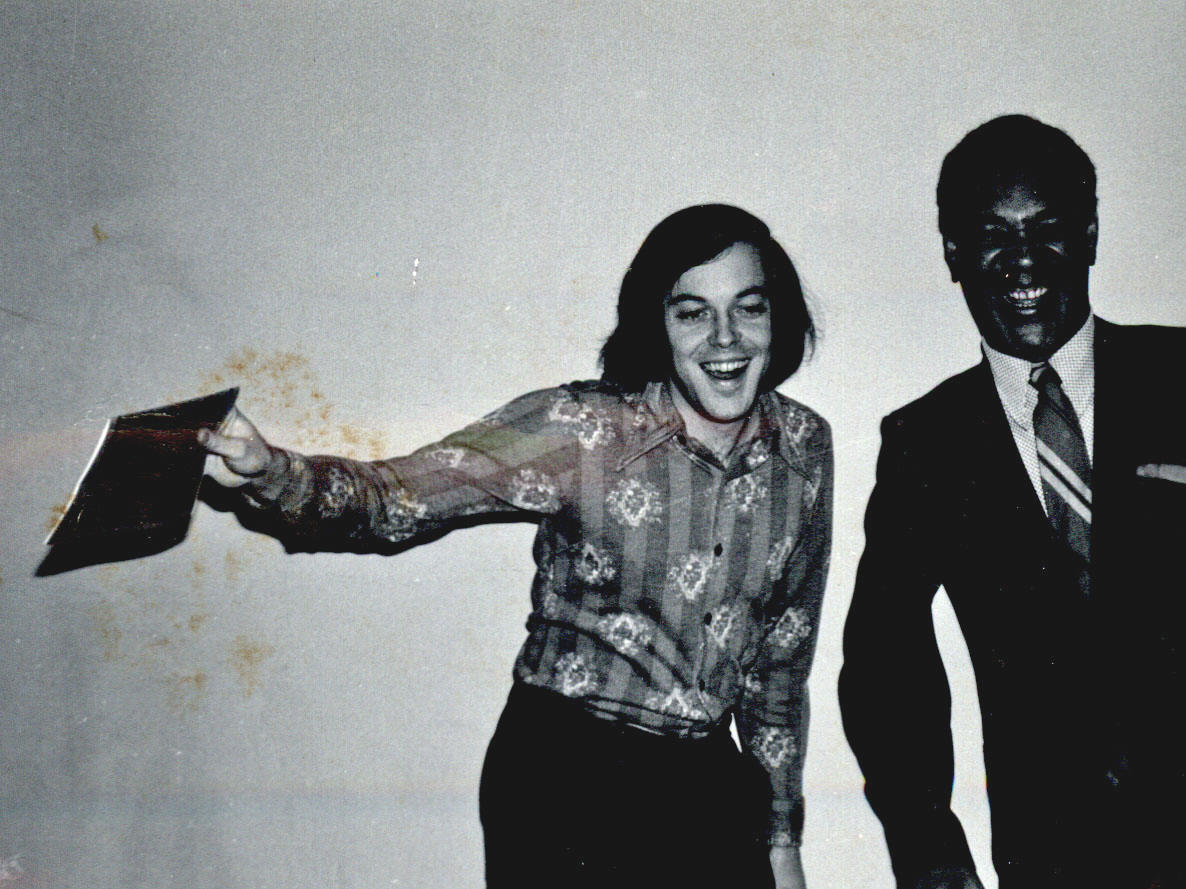 |
| Larry Hayes was brought from WAOK in Atlanta to do mornings on the FM. |
|
|
|
Birmingham's Vulcan statue... next to the WERC-FM tower site on Red Mountain. |
| WERC FM, which later became 107 Kicks, was one of the first half-dozen FM Top 40 stations in the US. the Bartell FM's in Miami, Detroit and St. Louis were the first true FM CHR stations; WERC followed a few months later in early 1972. |
| One of the local effects of having a Top 40 station on FM was the decline of AM top 40 WSGN, where morning personality Rick Dees soon decided to move on to Memphis! |
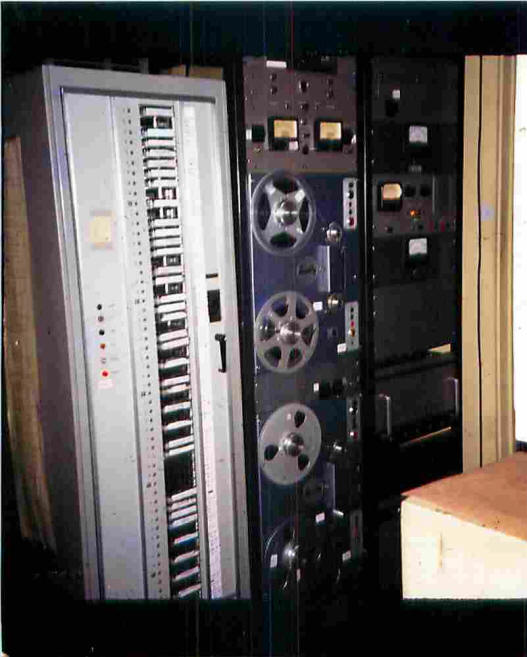 |
| Before going live with Top 40, WERC FM ran Oldies using this lovely cart elevator, known for its ability to shear a Fidelipac in half, and the nice reel to reel machines you see here for the music. |
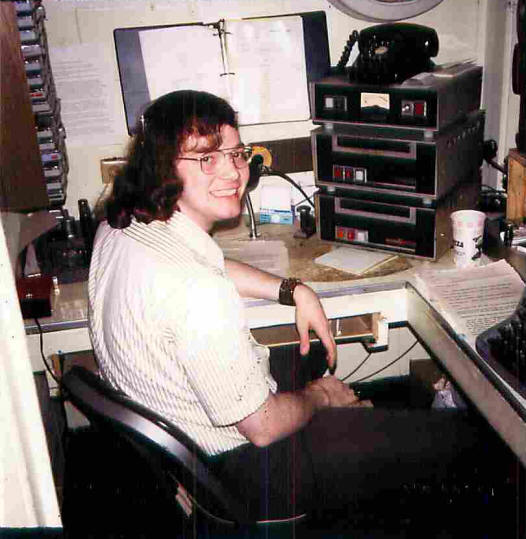 |
| The WERC newsroom. As a full service station there was news every hour around the clock, and a news staff in all the daytime hours. Our morning host, Doug Layton, was also the voice of the Crimson Tide, and WERC was the flagship station for Alabama football. |
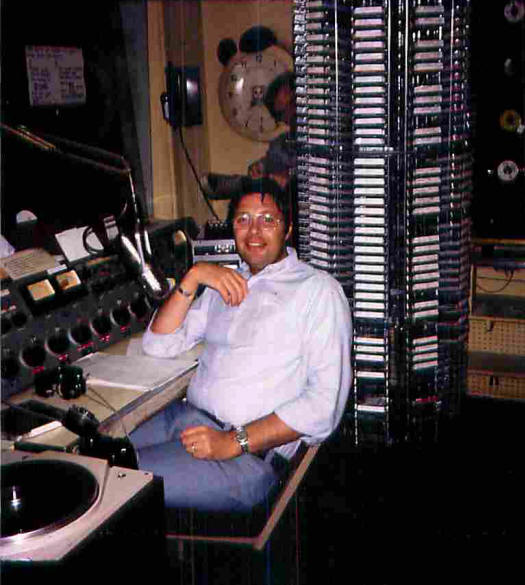 |
| One of the |
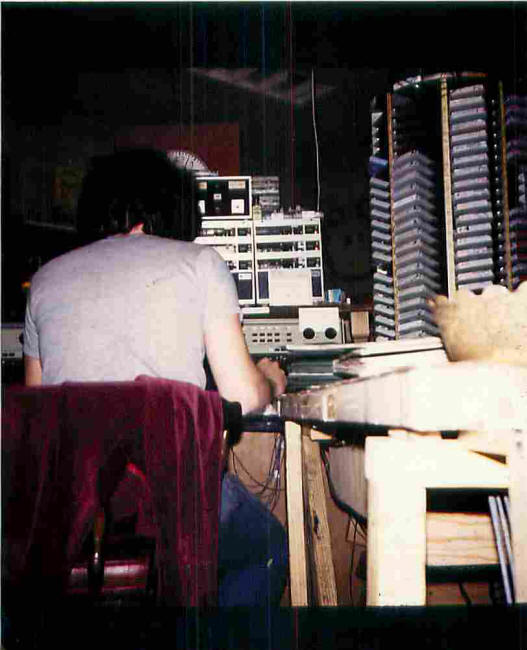 |
| Jay W. Jason in the FM studio. Note that it was build on sawhorses and the desk was a big sheet of plywood. Still, we beat the AM Top 40, WSGN, out of the box. And their morning guy, one Rick Dees, soon left for Memphis. Of course, we did all the radio games, including sending WSGN a fueneral wreath. |
 |
| WERC had union board operators until Taft sold it. The board faces the AM studio, and the engineers ran all the music and commercials. |
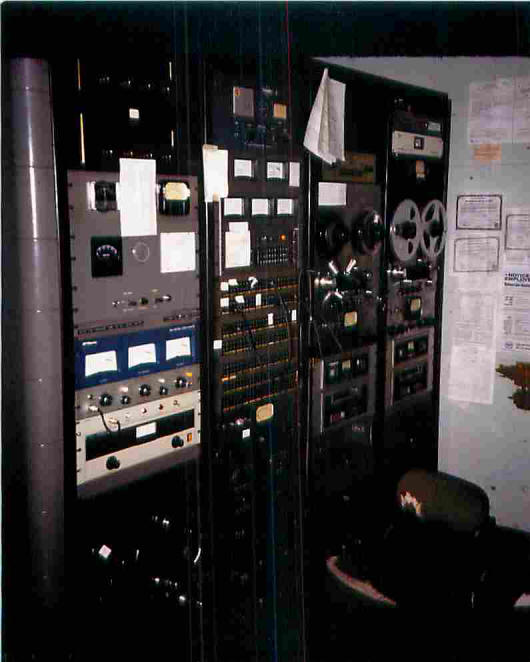 |
| Part of the FM gear and the remote control for the AM |
|
|
| Bill Tanner, shown here at Y 100 in Miami a few years later, was PD of WJDX in Jackson, MS, while I was in Birmingham. We occasionally exchanged leads on talent and Bill tipped me off about a guy on WKRG in Mobile, who I hired for PM Drive. He was Jan Jeffries, who went on to become the VP of Programming for Cumulus. 8 years later, Tanner and I would work at Metroplex Communications in Miami, and later with Cecil Heftel in Los Angeles. |
